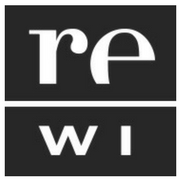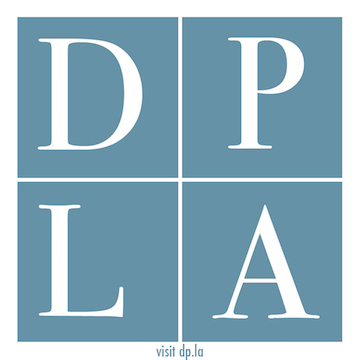Since 1974, the Madison Trust for Historic Preservation (Madison Trust) has focused on advocacy for and education about Madison, Wisconsin’s historic places. The organization is managed by a Board and Administrative Office Manager Jennifer Gurske and has relied on a volunteer board of trustees and community volunteers invested in local history preservation.
Digitization project beginnings
For many years, the Madison Trust held an office in downtown Madison, Wisconsin — a location where volunteers would gather to work and which housed several file cabinets of organization records and historic materials. In 2019, the Madison Trust closed its downtown office. This decision required Gurske to find a new home for 15 boxes of historic materials including frequently used place files, organizational records, brochures and photographs.


Madison Trust for Historic Preservation collection materials
In planning the move, it became apparent that no one currently associated with Madison Trust had a clear understanding of the boxes’ contents which made it difficult to decide what to do with the collection. Gurske reached out to Recollection Wisconsin for collection management advice. Under that advice, Gurske enlisted UW-Madison Information School graduate students to conduct a collection analysis, noting box contents, subjects and formats. Their collection analysis also included a determination of what content would be of interest to the public which, in turn, informed selection for digitization. These included 1) Board documents, 2) Madison area building histories, 3) “Place Files” containing photographs, drawings, newspaper clippings, notes and 4) tour sheets documenting neighborhoods, city blocks and specific buildings.
Madison Trust lacks a public library or archives reading room — a place where patrons typically would go to view collections and seek assistance researching historic buildings.
I felt strongly that a digitization project would improve our ability to provide better public reference service, allowing us to more efficiently research and answer questions about Madison locations such as “What kind of siding might have been on X building in 1938?” or “What did The Edgewater Hotel look like before the renovation?”
Jennifer Gurske
Madison Trust also hoped to raise public awareness of the organization and its decades-old, unique collection of photographs and paper records through this digitization project. Digitized records would also provide easier internal access to Board decisions, financial documentation, and the organization’s history.
Gurske sought grant funding to support a digitization project including purchasing an Epson Perfection V600 scanner. Student staff scanned the most vulnerable materials in the collection including slides, printed and oversized photos. This pilot project provided critical information to include in future project planning such as the amount of time and resources needed to digitize items in their collection.


Madison Trust for Historic Preservation collection materials
Building on this momentum, Madison Trust hired a part-time archives assistant to continue digitizing and organizing the collection materials beginning with the Place Files. In Fall 2020, the Madison Trust received a WiLS Ideas Into Action Fund grant which supported this ongoing work and position.
Digital readiness: challenges and opportunities
As a member of the Digital Readiness Community of Practice Launch Committee, Gurske understands the importance of sharing resources and knowledge to support others engaged in digital work. Connecting local history practitioners with each other and with resources to support their work helps build confidence and competence. And sometimes the hardest part is getting started! The Digital Readiness Community of Practice aims to make those connections with peers and colleagues easier to find and sustain.
When Gurske first encountered multiple file cabinets full of records, admittedly, she felt overwhelmed. Recollection Wisconsin staff helped Gurske develop a plan to 1) review collection materials, 2) work with graduate students to create an inventory of collection contents and organize and prioritize materials for digitization and 3) develop a digitization project.
This project has also inspired Gurske to create more clearly defined documentation and training materials for project staff allowing for more consistent management of a volunteer or student workforce. It also saves valuable time training (or retraining!) staff. Similarly, Gurske hopes to develop a guide for interviewing staff and volunteers who will work on technology-intensive digitization projects. Both the workflows and the volunteer guide will become part of the Digital Readiness Community of Practice documentation to be shared with other local history practitioners.
I was definitely out of my depth trying to organize and digitize an archive collection. Without the help of Recollection Wisconsin, the iSchool at UW-Madison, the Wisconsin Council for Local History and WiLS, this would have been a much more difficult process. We know from experience how important it is to have resources, like the Digital Readiness Community of Practice, that can help guide you to success.
Jennifer Gurske
One of Gurske’s greatest challenges was project logistics. The Madison Trust lacked space to host a digitization project. A local moving company offered to provide storage for the collections but accessing materials for digitization would have been cumbersome and time consuming. Serendipitously, Gurske connected with an organization who donated temporary project workspace. Having adequate and secure space for equipment, staff and collection materials should always be a key component of any digital project plan.
What’s next?
- Creating and sharing resources and knowledge: Gurske found that initial project analysis and planning efforts helped inform additional grant applications. Documenting decisions, processes and data will make future grant applications and funding requests easier and demonstrate how the Madison Trust will build upon previous successes.
- Expanded access: Madison Trust will provide public access to their digitized materials through Recollection Wisconsin, increasing awareness of their organization and collections. This step will require a more in-depth exploration of copyright status for some materials, publicizing the digitized collection and thinking about ongoing costs for collection maintenance and preservation.
- Digital preservation and storage: Gurske intends to undertake an analysis of digital preservation principles and how they apply to Madison Trust. For now, their digitized materials are stored on two external hard drives backed up by BackBlaze, a cloud-based backup and storage service.
- Secure, stable funding: The Madison Trust is a small cultural heritage organization with a limited budget. Multiple small grants supported initial equipment purchases and staff but Gurske hopes to identify and secure more sustainable funding for this work.
- Continued participation in the Digital Readiness Community of Practice: This group provides a support network for local history practitioners, like Gurske, to connect, support and learn from each other. Resources and recommendations such as these are also available in the Digital Projects Toolkit.
Final thoughts…
- Digitization projects and their goals will vary depending on an organization’s needs and collections. In this case, digitization facilitated virtual reference service for an office-less organization.
- Before scanning ever begins, there is a lot of work that goes into a digitization project; decisions and planning that help a project run smoothly and provide “proof of concept” and foundation information for funding requests.
- Small grants can be used to seed different project components. For example, small grants might pay for a scanner, support a few hours’ scanning staff each week or provide for digital storage space on an external hard drive.
- Working with students and volunteers carries unique and gratifying challenges. Having clearly written guidelines and training materials will help facilitate the work and partnerships.
Just the highlights? Download Madison Trust’s Digital Readiness Case Study in Brief.
Many thanks to Madison Trust for Historic Preservation and Jennifer Gurske for sharing their experience with our digital readiness community of practice!
This work is funded through an Archives Collaboratives Implementation Grant from the National Historical Publications and Records Commission (NHPRC), the granting arm of the National Archives. Visit Digital Readiness Community of Practice for more information.


